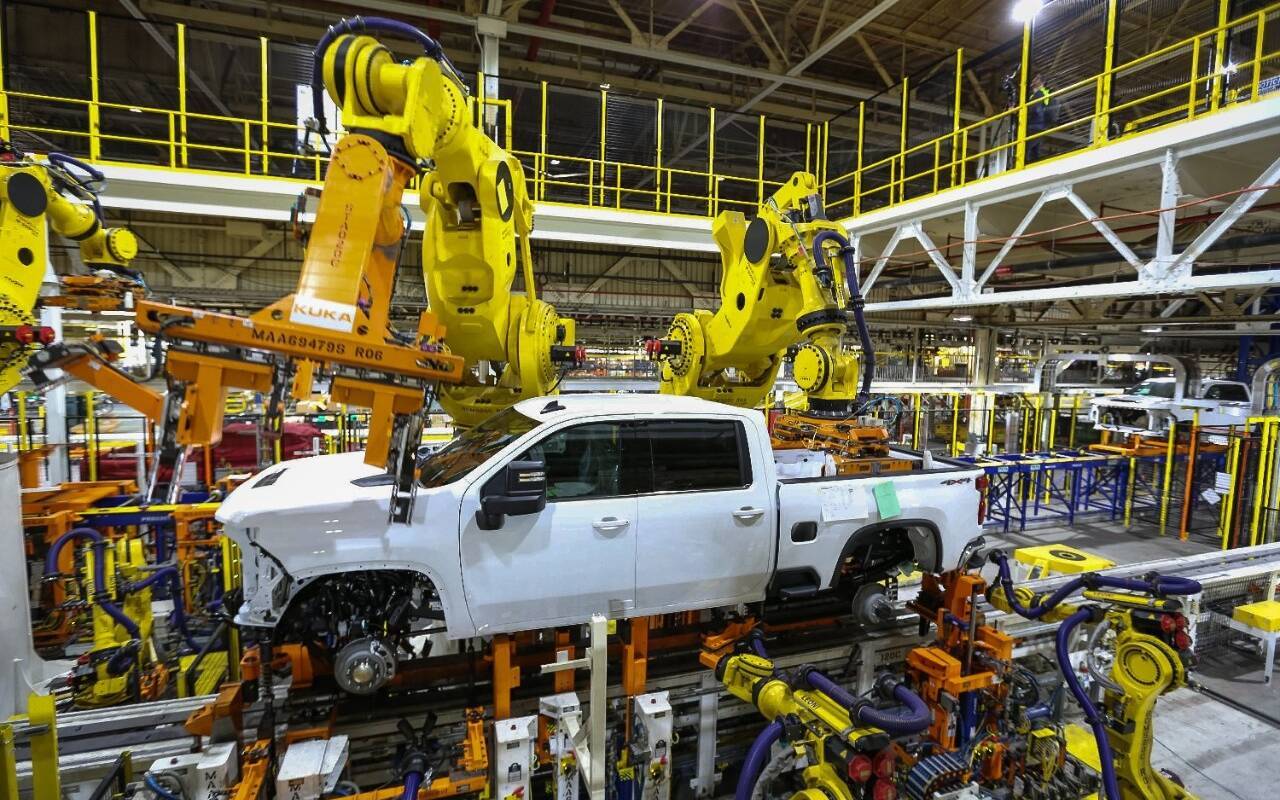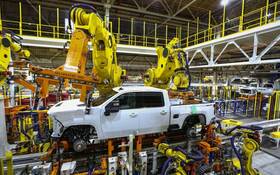GM Plants Back to Normal Capacity With Better Flow of Chips
As a result of a better flow of semiconductors in the supply chain, nearly all General Motors plants in North America are currently operating at regular capacity. A handful of plants are also running weekend overtime shifts to help clear the backlog.
That’s what GM spokesman Dan Flores told The Detroit News this week.
- Also: Chip Shortage Prompts GM to Delete Heated Seats and Steering Wheels
- Also: GM Moving Fast to Clear Backlog of Pickups Amid Chip Shortage
If you’ve recently ordered a Chevrolet, Buick, GMC or Cadillac vehicle, or plan to do it shortly, delivery times are likely going to be faster and dealer inventories should be fuller.

The only two GM plants on idle at the moment have nothing to do with the ongoing chip shortage. As previously reported, production at Orion Assembly in Michigan is suspended at least until late January as the automaker focuses on replacing potentially defective batteries in all Chevrolet Bolt EV and Bolt EUV vehicles built so far.
Meanwhile, the Wentzville, Missouri plant is currently being renovated and retooled for the next-generation Chevrolet Colorado and GMC Canyon, which are slated to launch next year as 2023 models.
Earlier this year, GM had to shut down a number of plants for several weeks, sometimes months, due to a lack of parts including semi-conductors, which are required for a myriad of electronic vehicle systems and technologies.

The automaker prioritized getting chips to its most popular and profitable vehicles, namely full-size pickups and SUVs, then it sacrificed certain features and functionalities such as Super Cruise, heated/ventilated seats and heated steering wheels. As it turns out, GM now says that dealers will be able to retrofit heated and ventilated seats in mid-2022, at GM's expense (heated steering wheels cannot be retrofitted, however).
The global chip shortage will likely drag on into 2022 and part of 2023, many automakers and experts predict, although JPMorgan analysts said recently they expect to see a major improvement in the supply starting next summer.
Back in September, American multinational semiconductor company GlobalFoundries agreed to double its automotive chip output in 2021. Before that, Taiwanese manufacturer TSMC announced it was producing 60 percent more chips for the auto industry this year than it did in 2020.












